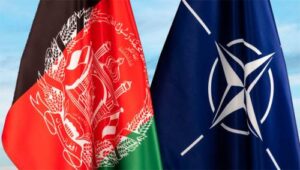
MONITORING (SW) – The U.S. Secretary of State Mike Pompeo is declining to sign a deal with the Taliban that is designed to wind down America’s 18-year war in Afghanistan, Time Magazine reported.
The “agreement in principle” that U.S. envoy Zalmay Khalilzad has hammered out in nine rounds of talks with Taliban representatives in Qatar would take the first tentative steps toward peace since U.S. and allied forces deployed to Afghanistan following the attacks on 9/11, according to senior Afghan and Trump Administration officials familiar with its general terms, it noted.
The report said Defense Secretary Mark Esper was scheduled to discuss the closely held details of the deal with President Donald Trump in a Sept. 3 meeting, according to senior administration officials. If Trump approves and a deal is struck, it could begin a withdrawal of some 5,400 U.S. troops, roughly a third of the present force, from five bases within 135 days.
But, the deal doesn’t ensure several crucial things, those familiar with the discussions tell TIME. It doesn’t guarantee the continued presence of U.S. counterterrorism forces to battle al Qaeda, the survival of the pro-U.S. government in Kabul, or even an end to the fighting in Afghanistan. “No one speaks with certainty. None,” said an Afghan official taking part in briefings on the deal with Khalilzad. “It is all based on hope. There is no trust. There is no history of trust. There is no evidence of honesty and sincerity from the Taliban,” and intercepted communications “show that they think they have fooled the U.S. while the U.S. believes that should the Taliban cheat, they will pay a hefty price.”
That may explain why Pompeo declined to put his name on the deal, according to the Time Magazine. The Taliban asked for Pompeo to sign an agreement with the Islamic Emirate of Afghanistan, the official name of the government founded by the Taliban in Afghanistan in 1996, four U.S., Afghan and European officials familiar with the discussions tell TIME. Having the Secretary of State sign such a document would amount to de facto recognition of the Taliban as a legitimate political entity, and he declined to do so, the Afghan officials say.
Pompeo’s office declined to comment before publication of this story. After it was published, Pompeo said through a spokesperson that he might sign if Trump and all parties struck a deal. “There is no agreement to sign yet. If and when there is an agreement that is approved by all parties, including President Trump and if the Secretary is the appropriate signatory, he will sign it,” State Department spokesperson Morgan Ortagus emailed TIME Wednesday evening.
There are two alternatives. Khalilzad himself may sign it. Or the U.S. and the Taliban may simply issue a joint statement, supported in turn by the U.S.-backed government in Kabul and a number of other countries, including Japan, Russia and China, two Afghan sources familiar with the deliberations tell TIME.
That diplomatic sleight of hand might solve the signature problem, but it won’t do much to address the core challenges facing those who want to give peace in Afghanistan a chance after four decades of war. As it stands, the agreement would set the stage for the withdrawal of most American forces by the end of November 2020 if the Taliban do three things: open negotiations with the U.S.-backed Afghan government; reduce violence near areas U.S. forces control; and keep foreign militants out of the areas they control, according to current and former U.S., Afghan and European officials, who all spoke anonymously to describe the sensitive and fractious deliberations.
According to the report, the U.S. military and intelligence officers and diplomats who have served in Afghanistan worry that once a withdrawal is underway, it will be irreversible, given Trump’s promise to end the U.S. involvement in the war there, the fast-approaching 2020 U.S. elections and the absence of public support for the war.
For Afghan officials, or at least the government of Afghan President Ashraf Ghani, it’s a final insult and a dark turning point in relations with Washington. Publicly, Ghani has tentatively, though not officially, embraced the deal. But privately aides tell TIME that they have heard shouting matches between Ghani and Khalilzad in Kabul over the last two days, with Khalilzad telling Ghani that he’s got to accept this deal because Afghanistan is losing the war.
The disagreements range from the petty to the existential: Afghan-born Khalilzad won’t give a draft of the Taliban agreement to Ghani, the elected Afghan president, and a university classmate of Khalilzad’s, the aides say. Ghani won’t yield on holding Afghan presidential elections that are likely to hand him another five-year term, complicating the nascent Oslo talks with the Taliban.
Each man has given some quarter, with Khalilzad publicly conceding that it’s likely too late to cancel the Sept. 28 election, and Ghani agreeing to send a delegation to Oslo to start talks with the Taliban in the last week of September, just before the voting. The 15-person delegation includes three women, but the names won’t be announced until just before the talks begin, Afghan officials said.
ENDS




